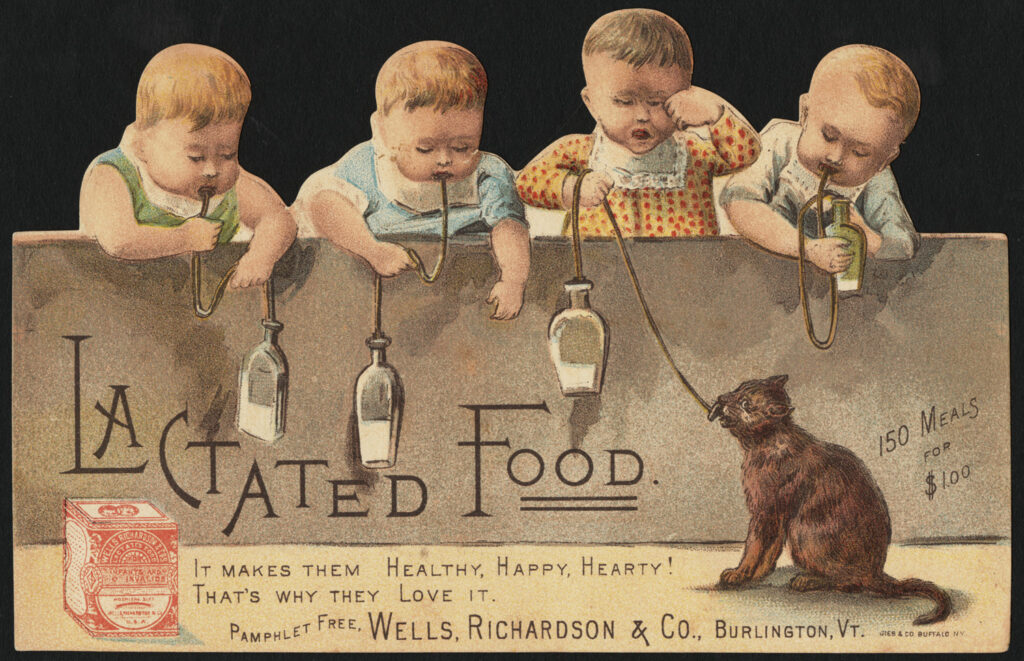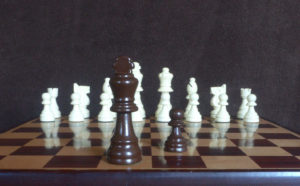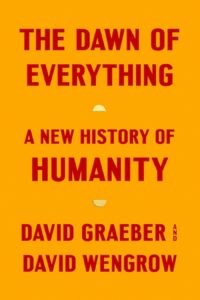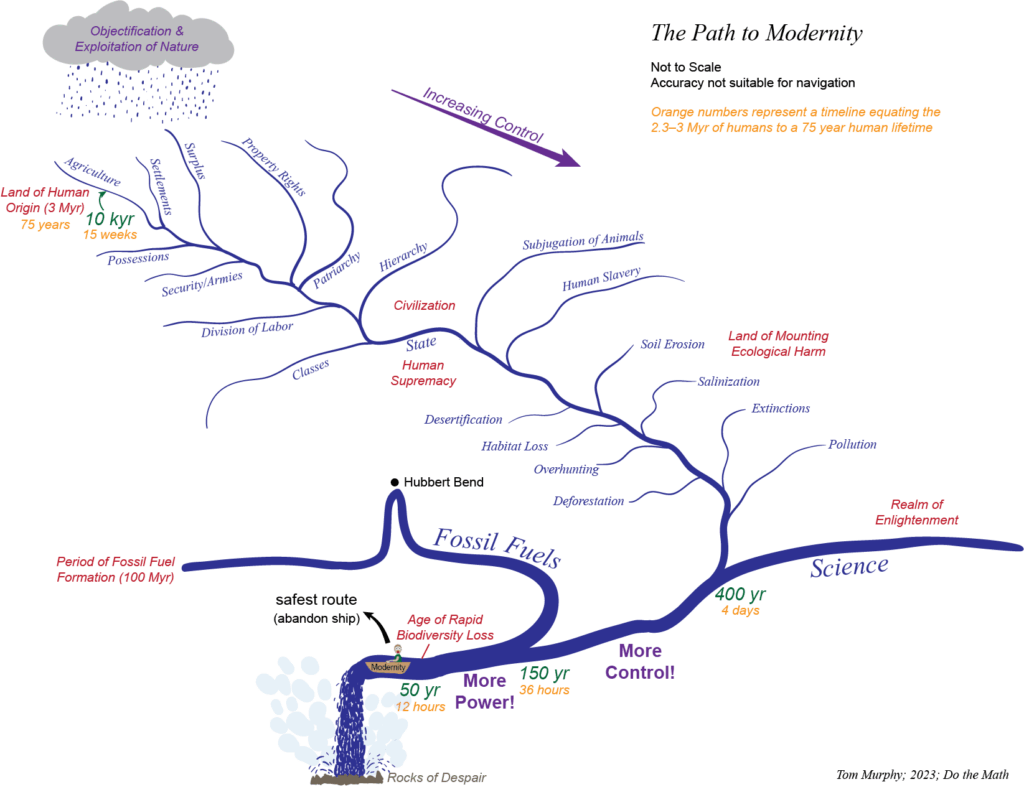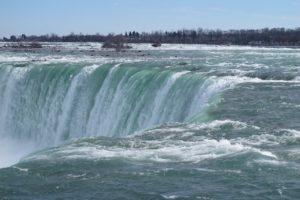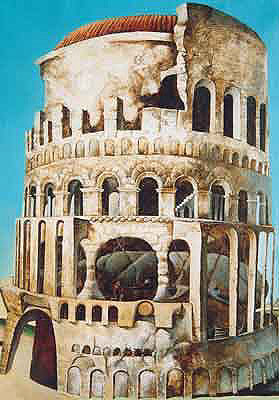
In November I gave a seminar talk for the Planetary Limits Academic Network about why I believe modernity to be a dead-end, while also touching on underlying attitudes that drive us in this destructive direction. When presenting the narrative that sequential development of agriculture, writing, money, science, and fossil fuels collectively constituted a decisive trap leading us to the current state, I got pushback from a few in the audience over the notion of determinism. See my Time on the River post for a flavor of this narrative.
Fans of Graeber & Wengrow’s Dawn of Everything (and there are many, especially in the left-leaning academic circles from which I hail) tend to be—like the authors—allergic to suggestions of determinism. They find the notion very appealing that we could just as well have designed and conjured the ideal technological society: egalitarian, global, peaceful, prosperous, clean, and all the rest. See Abundance as recent example of such eco-modernist fantasy. I was honestly stunned by the gross simplifications in Graeber & Wengrow’s book, which elicited a sharp critique from me.
The moderator of the seminar prodded Chris Smaje, in attendance, to comment on my negative portrayal of agriculture. Chris has written, among other books, A Small Farm Future, runs a blog of the same name, and is generally an advocate of a small-scale agrarian response as a path to exit modernity—which in itself I believe is a fine (transitional) strategy.
The discussion prompted Chris to draft a blog post, which he passed by me to avoid misrepresentation and to solicit comments. We had an engaging e-mail exchange for a bit, and last week his post (By the Rivers of Babylon: debating agrarianism with Tom Murphy) went live. This post offers my follow-up response on the subject.
Continue readingViews: 2969


